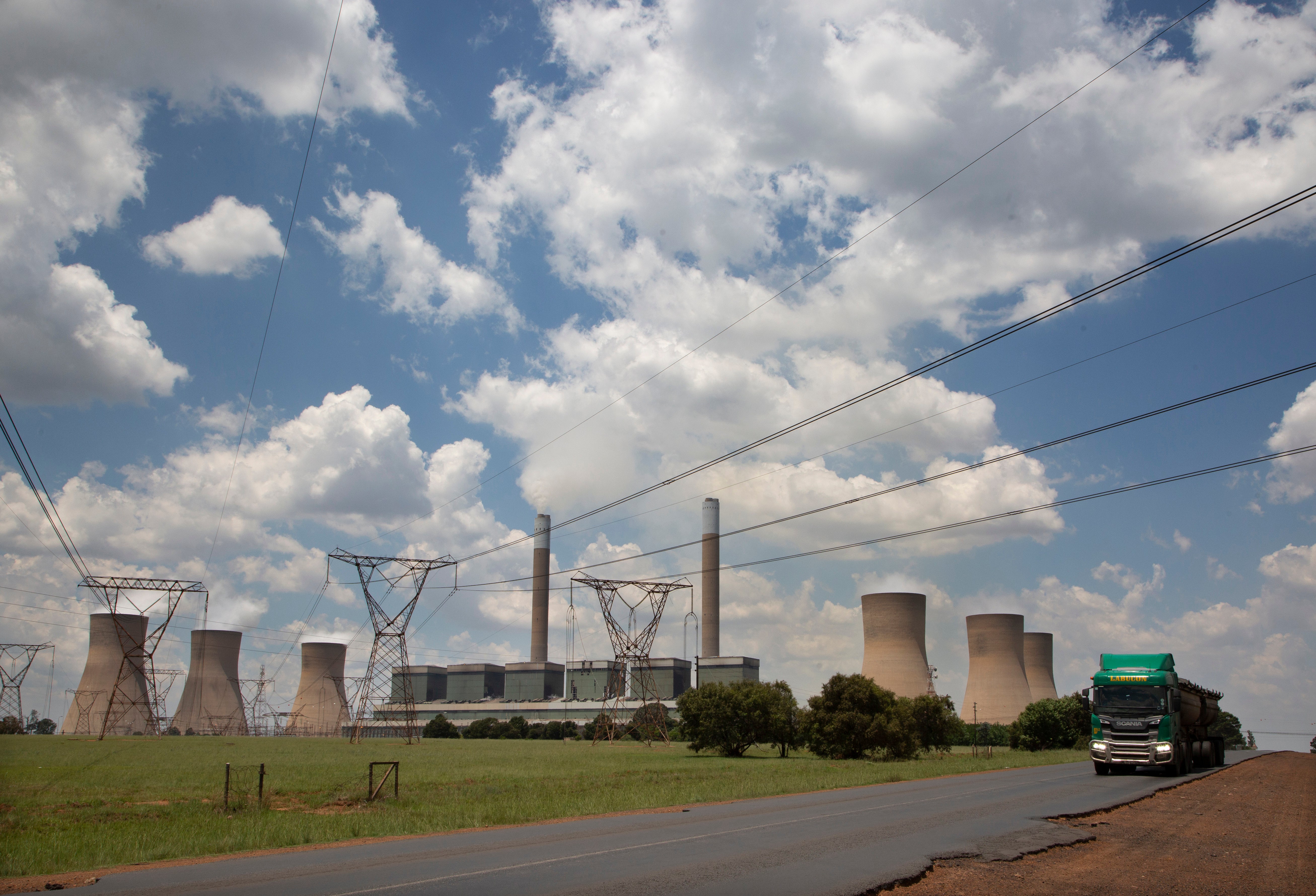The World Bank approved a $1B loan to help blackout-hit South Africa's energy sector
The World Bank has approved a $1 billion loan for South Africa to help it address an energy crisis that has peaked this year with the country’s worst electricity blackouts

Your support helps us to tell the story
From reproductive rights to climate change to Big Tech, The Independent is on the ground when the story is developing. Whether it's investigating the financials of Elon Musk's pro-Trump PAC or producing our latest documentary, 'The A Word', which shines a light on the American women fighting for reproductive rights, we know how important it is to parse out the facts from the messaging.
At such a critical moment in US history, we need reporters on the ground. Your donation allows us to keep sending journalists to speak to both sides of the story.
The Independent is trusted by Americans across the entire political spectrum. And unlike many other quality news outlets, we choose not to lock Americans out of our reporting and analysis with paywalls. We believe quality journalism should be available to everyone, paid for by those who can afford it.
Your support makes all the difference.The World Bank approved a $1 billion loan for South Africa on Wednesday to help it address an energy crisis that has peaked this year with the country's worst electricity blackouts. The energy problem has forced the country to lean on its highly polluting coal-fired power stations.
South Africa has experienced scheduled, rolling blackouts for months because of problems generating enough electricity for its 62 million people. The state-run power utility, Eskom, generates approximately 80% of the country's electricity through its coal stations, but they have failed to meet demand due to mismanagement, corruption and regular breakdowns.
South Africa's commitment to its climate change targets are in danger of being affected in the short term, with President Cyril Ramaphosa announcing in April that it may delay shutting down some of its coal stations because of the electricity supply problems.
“The loan endorses a significant and strategic response to South Africa’s ongoing energy crisis, and the country’s goal of transitioning to a just and low carbon economy,” the World Bank said.
While Africa contributes the least to climate change and is the continent affected the most, South Africa is Africa's most advanced economy and the world’s 16th-largest emitter of greenhouse gases overall. It is 45th per capita based on 2019 data, according to Climate Watch.
The South African government has said it needs nearly $80 billion over the next five years to fund its transition to greener energy sources.
It has already received a $439.5 million loan from the World Bank to help convert a former power station into a renewable energy provider. The Komati power station was decommissioned last year, but its story is an example of how developing countries desperately need money to finance their change to greener energy sources to help meet climate change goals.
The World Bank has been urged to provide more funding for African countries facing climate change and other problems.
___
AP Africa news: https://apnews.com/hub/africa